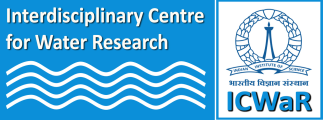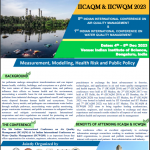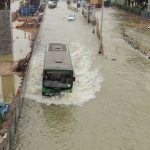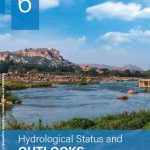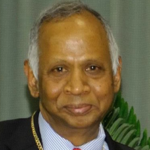Interaction of groundwater with surface water: the example of Ganges river
Name of the Speaker: Prof. Abhijit Mukherjee
Title of the Seminar: Interaction of groundwater with surface water: the example of Ganges river
Date and Time: 28 April 2022 (Thursday), 4:00pm
Online Platform: MS Teams [link to the video of the seminar]
About the Speaker: Prof. Abhijit Mukherjee, PhD (Hydrogeology) graduated from the University of Kentucky, USA (2006) and completed postdoctoral work at the University of Texas at Austin, USA (2006-2008). He served as the Physical Hydrogeologist at the Alberta Geological Survey in Canada (2008-2010). He is currently an Associate Professor at the Department of Geology and Geophysics, and School of Environmental Science and Engineering at the Indian Institute of Technology Kharagpur (IIT Kharagpur), India. His main research areas are physical, chemical and isotope hydrogeology, including numerical modeling, computation, contaminant transport, water policy applications. He is known for his studies on geological and human-sourced groundwater pollution (e.g. arsenic, fluoride, sanitation-borne and emerging contaminants) in more than a dozen countries, water quantity estimates including application of advanced computation and Artificial Intelligence techniques.
For his work on groundwater Prof. Mukherjee has been conferred the National Geoscience Award 2014 by the President of India, Kharaka Award in 2020 by International Association of Geochemist, inducted as Fellow to Royal Society of Chemistry (2020) and the Geological Society of America (2021), named as top 75 leading Scientists and Experts who are under 50 years of age. As the first South Asian, ever, he is presently serving in the Council of the Geological Society of America. He was awarded the Shanti Swarup Bhatnagar Prize in 2020, regarded as India’s highest science award.
Abstract: The mega-Himalayan river Ganges (or Ganga), one of the largest in the world and the lifeline of northern India for the last several thousand years, hosting almost 10% of the present global and half of Indian population on its fertile banks, has been found to have unprecedented low levels of river water (drying up) in several lower reaches in the summers of recent years. Using a combination of satellite-based and in-situ measurements of river water and groundwater levels, isotopic and chemical analyses of Ganges river and groundwater, simulation results from global hydrologic models and regional groundwater flow models, shows that the present-day summer drying of the river Ganges is possibly driven by groundwater depletion in the Gangetic aquifers of north India. One hypothesis is that a decrease in groundwater inflow (baseflow) has a severe impact on the health of the river. The present-day baseflow to the Ganges from the adjoining aquifers, which may be up to a third of total river volume during pre-monsoon months, might have decreased by >50% from the beginning of irrigation-pumping age in the 1970s. Under several assumptions and approximations, it has been predicted that the groundwater contribution to Ganges river water flow would continue to decrease in impending years, and can decrease up to ~75% of the 1970s. Thus, a continuation of the groundwater exploitation at similar per-capita rates might jeopardize the existence of the Ganges River in several reaches in near future, thereby leading to disastrous carbohydrate and other food scarcity for ~ 115 million people inhabiting in the study region by 2050.
Date/Time
Date(s) - 28/04/2022
4:00 pm
